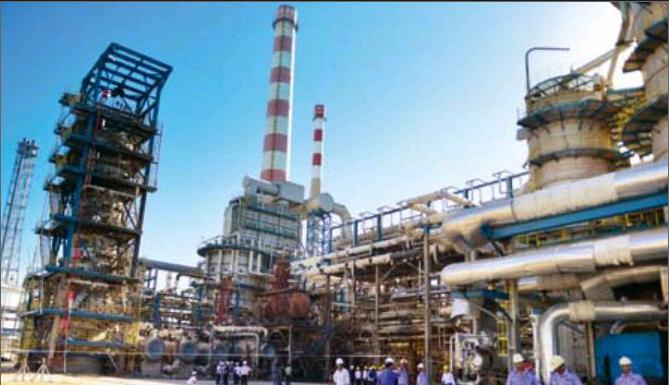Toxic Questions
by+Yin+Xing


Para-xylene, or PX as its common- ly abbreviated, is a chemical used in fibers and plastic products.
Such chemicals rarely inspire much attention from the public, but residents of Maoming City in southern Guangdong Province know about PX all too well due to a planned PX project and heavy local opposition.
This is not the first time Chinese people have said “no” to PX. Due to public protests, PX projects planned for Xiamen and Ningbo were canceled in June 2007 and October 2012, respectively, and a PX plant in Dalian was shut down in August 2011. In May 2013, oil refining projects by PetroChina and Sichuan Sinopec met daunting opposition from residents because the plants intended to produce PX.
Protesters are concerned with the impact of PX production on human health and the environment, while Chinas demand for PX increases dramatically each year. By 2012, China had become the biggest consumer of PX, accounting for 32 percent of its usage globally. In 2013, Chinas imported PX increased by 42 percent, so the country is well aware of the need to produce it domestically.
Highly flammable and hardly toxic, according to the IARC (International Agency for Research on Cancer) monograph, PX is “not classifiable as to its carcinogenicity to humans” and is grouped with caffeine. Many PX plants in foreign countries are located in urban areas, only a few thousand meters from residential communities: A PX plant in Houston is 1.2 kilometers from its urban area, a Singapor- ean Exxon refinery sits only 900 meters from dwellings and a NARC refinery in Yokohama, Japan, is separated from a residential community by only an expressway. Technically and scientifically, PX projects have been proven safe. Then, why is the Chinese public so panicked about PX?
Inspiring Panic
The root cause of the panic is a lack of accurate information and trust. Before groundbreaking on a PX plant, the public usually has little information about the project. Common steps, such as publicizing the expected impact, environmental-impact assessment and public discussion are rarely carried out. “The decision-making process is not transparent enough, so the public feels left in the dark,” remarks Professor He Yanling of Politics and Public Affair Administration Department at Sun Yat-Sen University in Guangzhou. “Because they have such meager information, the public fears risks caused by coming projects.”Meanwhile, misconceptions such as “PX is highly toxic,” “PX causes cancer” and“In foreign countries, PX plants are kept at least 100 kilometers from urban areas”continue spreading across the internet. As a result, the less-informed tend to believe the rumors and panic.

Even though PX is so widely regarded as safe, people still dont trust enterprises to operate in line with regulations, and lament poor supervision by the government. “I can believe PX is not very toxic, but I doubt the production process is safe,”remarks one netizen. “I believe the enterprises could guarantee safe production, but I dont believe they are sufficiently moti-vated to do so.”
“This shows how little the public trusts the discipline of enterprises and supervision of the government,” opines Yang Yuanyi, vice chairman of Chemical Industry and Engineering Society of China. With regard to management of environment, a wide gap remains between China and other countries, says Cao Xianghong, an academician of the Chinese Academy of Engineering. “When meeting protest from the public, important projects cannot simply be postponed, moved or canceled,” continues Cao. “A solution should be found after taking public sentiment into consideration. For example, the government could invite a qualified third party to assess the project and oversee the operation of enterprises. This is a prevalent method in other countries, but in China, that model is seldom employed.”
Additionally, local governments and enterprises often profit handsomely from major chemical programs like PX, while residents are left with risks caused by environmental damage. Whats more, if the past is any indication, when environmental accidents do occur, public compensation is paltry. Dr. Li Wanxin from Department of Public Policy at City University of Hong Kong has been studying environmental protections relationship to social development for a long time. Regarding Chinese mainlands PX projects, he believes that the distribution of costs and profits is unbalanced. Governments promote chemical projects and collect the majority of profits, while the local people have to face environmental hazards. Of course the public will oppose such projects.
Calming the Panic
One month before the Maoming event, the local government began publicizing and educating the public about PX due to awareness of protests against PX projects in other Chinese cities. However, their tactics backfired. Many residents who joined the protest declared that the flood of news reports about PX made them feel that the looming PX Project needed urgent and decisive action.
Some Chinese PX projects have successfully been welcomed by local residents. In 2009, 96 percent of Gulei residents approved a PX project on their island. According to Zeng Pingxi, deputy director of Management Committee of Gulei Development District, thousands of illustrated brochures were sent to schools and homes. Representatives from all walks of life were invited by the government to travel as far as Yokohama, Japan, and Jurong Island, Singapore, to visit PX plants as well as a chemical plant in Nanjing, China. Environmental-impact assessment reports and blueprints were revealed to the public, and they guaranteed transparency over the life of the project. At the planned plant site were a dozen temples and shrines dedicated to various deities worshipped by local fishermen, so the local government relocated the structures properly. Rather than canned publicity, customized care addressing specific concerns of the community did work.
Jin Yong, president of Chemical Science and Technology Institute of Tsinghua University, believes that the solution to PX issues lies in communication between governments, enterprises and the public. The government should keep projects transparent and help the public become part of plans. “No mystery, no fear.”
Major chemical programs are necessary for China in the industrial era. Chinas need for PX projects is undeniable, as is the publics increasing concern about the environment. Frequent PX disputes could actually provide a good opportunity for Chinese governmental organizations, enterprises and the public to together create an effective public inquiry mechanism for major chemical projects.

